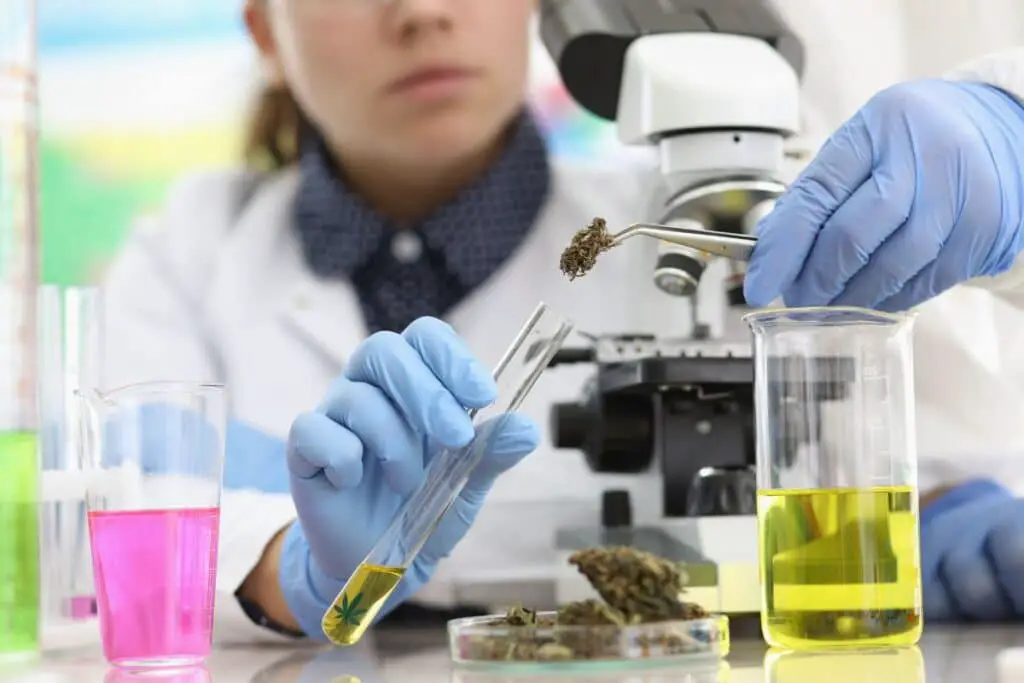Cannabis, also known as marijuana, has been a hot topic of debate for decades.
While some people argue that it has numerous health benefits, others believe that it is extremely harmful and should be avoided at all cost.
So the question remains: is cannabis good or bad?
Well, according to research, the answer is not so straightforward.

Historical Context of Cannabis
Early Use and Cultural Significance of Cannabis
Cannabis has been used for both medicinal and recreational purposes for thousands of years. The earliest recorded use of cannabis dates back to ancient China, where it was used for its medicinal properties.
In India, cannabis was considered a sacred plant and was used in religious ceremonies. It was also used for its medicinal properties and was believed to have healing powers.
Throughout history, cannabis has been used for a variety of purposes in different cultures. It was used in ancient Egypt for its medicinal properties and was used in ancient Greece and Rome for its psychoactive effects.
Prohibition and Changing Attitudes towards cannabis use
In the early 20th century, attitudes towards cannabis began to change. In the United States, the Marijuana Tax Act of 1937 effectively made cannabis illegal.
This was followed by the United Nations Single Convention on Narcotic Drugs in 1961, which classified cannabis as a Schedule I drug.
In recent years, attitudes towards cannabis have begun to shift once again. Many countries have legalized cannabis for medicinal and/or recreational use.
Research has shown that cannabis can be effective in treating a variety of medical conditions, including chronic pain, epilepsy, and multiple sclerosis.
Despite this, there is still debate over the potential risks and benefits of cannabis use.
Some studies have linked cannabis use to an increased risk of mental health problems, such as psychosis and schizophrenia.
However, other studies have found no such link.
Cannabis Pharmacology
Cannabis is a complex plant with over 100 known chemical compounds, including cannabinoids, terpenes, and flavonoids.
The two most well-known cannabinoids are tetrahydrocannabinol (THC) and cannabidiol (CBD).
THC is the primary psychoactive compound responsible for the “high” associated with cannabis use, while CBD is non-psychoactive and is believed to have potential therapeutic benefits.
Terpenes and flavonoids are pharmacologically active compounds.
Terpenes give cannabis its distinct smell and taste and flavonoids give cannabis its color.
How Cannabis Affects the Brain
When cannabis is consumed, THC binds to cannabinoid receptors in the brain, which are part of the endocannabinoid system.
This system is involved in regulating a variety of physiological processes, including mood, appetite, and pain sensation.
THC’s binding to these receptors can lead to changes in mood, perception, and cognition.
CBD, on the other hand, does not bind strongly to cannabinoid receptors but can modulate their activity.
It is believed to have potential therapeutic benefits, including anti-inflammatory, analgesic, and anxiolytic effects.

Overall, the pharmacology of cannabis is complex and not fully understood.
While some of its compounds have potential therapeutic benefits, others can lead to unwanted effects.
Further research is needed to fully understand the effects of cannabis on the body and brain.
According to a study published in the Clinical Pharmacology and Therapeutics journal, cannabis and cannabinoids can be used to treat chronic pain, chemotherapy-induced nausea and vomiting, and spasticity in multiple sclerosis patients.
Additionally, cannabis has been found to have anti-inflammatory properties that may help with conditions such as Crohn’s disease and irritable bowel syndrome.
Potential Risks and Side Effects of Cannabis
While cannabis may have therapeutic benefits, it also has potential risks and side effects.
The most common side effects of cannabis use include dry mouth, red eyes, increased heart rate, and impaired coordination.
According to a study by the National Academies of Sciences, Engineering, and Medicine, cannabis use can also lead to impaired learning, memory, and attention.
Additionally, cannabis use can lead to addiction and withdrawal symptoms.
Long-term Health Considerations of Cannabis Use
Long-term cannabis use has been associated with various health considerations.
According to a study published in the Journal of the American Medical Association, long-term cannabis use can lead to respiratory problems such as chronic bronchitis and lung cancer.
Additionally, long-term cannabis use has been found to have negative effects on mental health, including an increased risk of psychosis and schizophrenia.
Economic Impact of Legalization of Cannabis
Legalizing cannabis has the potential to create significant economic benefits.
In addition to generating tax revenue, it can create jobs in the cannabis industry and reduce the costs associated with enforcing cannabis laws.
However, there are also potential downsides to legalization, such as increased drug use and the potential for negative health effects.
Social and Ethical Implications Of Cannabis Use
Legalizing cannabis also has social and ethical implications. Some argue that it is a personal choice and that individuals should be free to use cannabis if they choose.
Others argue that it is a public health issue and that legalization could lead to increased drug use and negative health consequences.
Additionally, there are concerns about the impact of legalization on vulnerable populations, such as children and low-income communities.

Future of Cannabis
Research Trends and Directions of Cannabis
As cannabis becomes increasingly legalized and destigmatized around the world, the demand for research on its potential benefits and drawbacks is growing.
One area of research that is gaining traction is the investigation of the interactions between cannabis and other drugs, including prescription medications.
Researchers are also exploring the potential benefits of cannabis for a variety of medical conditions, including chronic pain, epilepsy, and anxiety disorders.
Additionally, there is a growing interest in the use of cannabis as a treatment for substance abuse disorders.
Innovation in Cannabis Products
As the cannabis industry continues to expand, there is a growing market for innovative and specialized cannabis products.
One area of innovation is the development of new delivery methods, such as transdermal patches, inhalers, and sublingual sprays.
Another area of focus is the creation of specialized strains of cannabis that are tailored to specific medical conditions or desired effects.
Additionally, there is an increasing interest in the use of non-psychoactive cannabinoids, such as CBD, in a variety of products, including skincare, food, and beverages.
Overall, the future of cannabis research and innovation is promising, with increased legalization and public acceptance leading to new opportunities for exploration.
However, it is important to approach cannabis use with caution and to continue to conduct rigorous research to fully understand its potential benefits and drawbacks.
So, I guess, cannabis is neither inherently good nor bad, but rather it has both potential benefits and risks that should be carefully considered.









